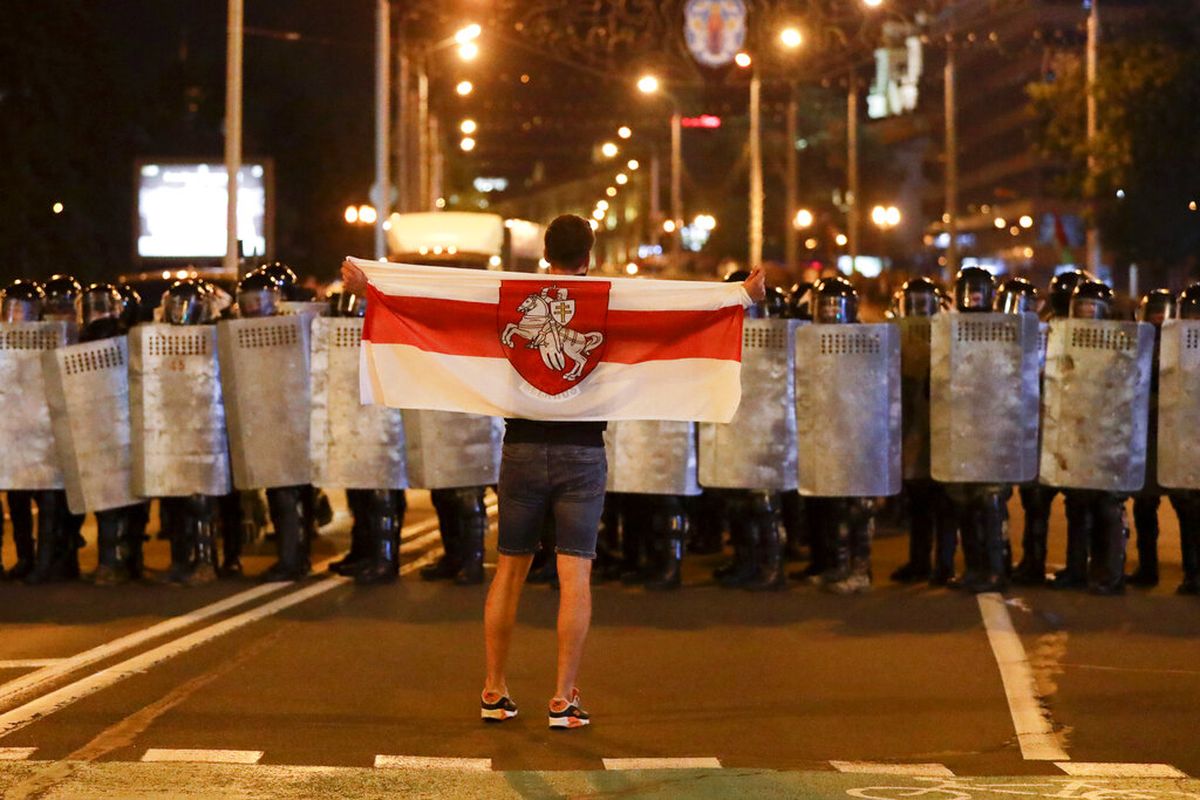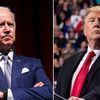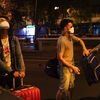Protests in Belarus Following Disputed Presidential Election Results

MINSK, KOMPAS.com - Thousands of demonstrators took to the streets to challenge the early results from Sunday’s Belarusian presidential election.
The early poll results indicate that Belarus’s long-time authoritarian leader won a landslide victory earning him a sixth term in office.
According to a leading rights group, hundreds of demonstrators were detained as Belarusian police in full riot gear violently dispersed the crowd.
The brutal crackdown that began late Sunday and lasted through the night followed a tense campaign that saw massive rallies against President Alexander Lukashenko, who has ruled the ex-Soviet nation with an iron hand for 26 years.
Election officials declared that early returns show 65-year-old Lukashenko winning with more than 80 percent of the vote.
The main challenger, Sviatlana Tsikhanouskaya, a former English teacher and political novice, had about 8 percent.
Sviatlana Tsikhanouskaya rejected the official claims, saying “I will believe my own eyes — the majority was for us.”
Thousands of her supporters quickly took to the streets of the capital to protest what they saw as official manipulations of the vote.
They faced rows of riot police in black uniforms who moved quickly to disperse the demonstrators, firing flash-bang grenades and beating them with truncheons.
After breaking up the big crowds, police relentlessly chased smaller groups of protesters across downtown Minsk for the next several hours.
Several other cities across the country saw similar crackdowns on protesters.
Interior Ministry spokeswoman Olga Chemodanova said that police efforts to restore order were continuing overnight, but wouldn't say how many people were detained.
Ales Bilyatsky of the Viasna human rights group told The Associated Press several hundred were detained and hundreds injured in the police crackdown.
“What has happened is awful,” Tsikhanouskaya told reporters Sunday.
An AP journalist was beaten by police and treated at a hospital.
At Minsk' Hospital No. 10, an AP reporter saw a dozen ambulances delivering protesters with fragmentation wounds and cuts from stun grenades and other injuries.
“It was a peaceful protest, we weren't using force,” said 23-year-old protester, Pavel Konoplyanik, who was accompanying his friend who had a plastic grenade fragment stuck in his neck.
“No one will believe in the official results of the vote, they have stolen our victory,” stated Pavel.
Pavel Konoplyanik, whose legs were also cut by fragments of police grenades, said he doesn't want to leave the country but fears that he might have no other choice.
Two prominent opposition challengers were denied places on the ballot, but Tsikhanouskaya, the wife of a jailed opposition blogger, managed to unite opposition groups and draw tens of thousands to her campaign rallies, tapping growing anger over a stagnant economy and fatigue with Lukashenko's autocratic rule.
Alexander Lukashenko was defiant as he voted earlier in the day, warning that the opposition will meet a tough response.
“If you provoke, you will get the same answer,” he said.
“Do you want to try to overthrow the government, break something, wound, offend, and expect me or someone to kneel in front of you and kiss them and the sand onto which you wandered? This will not happen.”
Mindful of Belarus’ long history of violent crackdowns on dissent — protesters were beaten after the 2010 election and six rival candidates arrested, three of whom were imprisoned for years — Tsikhanouskaya called for calm earlier Sunday.
“I hope that everything will be peaceful and that the police will not use force,” she said after voting.
After the polls closed, about 1,000 protesters gathered near the obelisk honoring Minsk as a World War II “hero city”, where police harshly clashed with them, beating some with truncheons and later using flash-bang grenades to try to disperse them.
Some of the protesters later tried to build barricades with trash containers, but police quickly broke them up.
Three journalists from the independent Russian TV station Dozhd were detained after interviewing an opposition figure and were deported.
Tsikhanouskaya emerged as Lukashenko's main opponent after two other aspirants were denied places on the ballot.
Viktor Babariko, head of a major Russia-owned bank, was jailed for charges he called political, and Valery Tsepkalo, an entrepreneur and former ambassador to the United States, fled to Russia with his children after warnings that he would be arrested and his children taken away.
Valery Tsepkalo's wife Veronika became a top member of Tsikhanouskaya's campaign, but she left the country too early Sunday, fearing for her safety, said campaign spokeswoman Anna Krasulina.
Over the weekend, eight members of Tsikhanouskaya's campaign staff were arrested.
Many voters were defiant in the face of Alexander Lukashenko's vow not to tolerate any protests.
“There is no more fear. Belarusians will not be silent and will protest loudly," 24-year-old Tatiana Protasevich said at a Minsk polling place.
As polls opened, the country’s central elections commission said more than 40 percent of the electorate had cast ballots in five days of early voting, a process the opposition saw as offering fertile ground for manipulation.
“For five nights nobody has guarded the ballot boxes, which gives the authorities a wide field for maneuverings,” Veronika Tsepkalo told AP before leaving Belarus.
The Organization for Security and Cooperation in Europe, whose assessments of elections are widely regarded as authoritative, was not invited to send observers.
Tsikhanouskaya had crisscrossed the country, tapping into public frustration with a worsening economy and Lukashenko’s swaggering response to the pandemic.
Belarus, a country of 9.5 million people, has reported more than 68,500 coronavirus cases and 580 deaths but critics have accused authorities of manipulating the figures to downplay the death toll.
Lukashenko has dismissed the virus as “psychosis” and declined to apply measures to stop its spread, saying a lockdown would have doomed the already weak economy.
He announced last month that he had been infected but had no symptoms and recovered quickly, allegedly thanks to playing sports.
Yet for some voters, Lukashenko's long, hardline rule was a plus.
“He is an experienced politician, not a housewife who appeared out of nowhere and muddied the waters,” retiree Igor Rozhov said Sunday. “We need a strong hand that will not allow riots."
(Writers: Yuras Karmanau, Jim Heintz, Vladimir Isachenkov)
Source: https://apnews.com/d310c4f9811b31e44fa5536bb826cc5e
Simak breaking news dan berita pilihan kami langsung di ponselmu. Pilih saluran andalanmu akses berita Kompas.com WhatsApp Channel : https://www.whatsapp.com/channel/0029VaFPbedBPzjZrk13HO3D. Pastikan kamu sudah install aplikasi WhatsApp ya.






































